No BBQs, no alfresco, shut before sunset: The ‘boring’ reality facing Sydneysiders in a city run by fun police
The once-vibrant global city of Sydney is now a boring nanny state run by the fun police, with a ban on a restaurant’s barbecue the latest sign councils have lost the plot.
Lifestyle
Don't miss out on the headlines from Lifestyle. Followed categories will be added to My News.
A bizarre claim that Sydney has pulled ahead of Melbourne in terms of vibrancy and nightlife was met with scoffs, laughing and jeers from a cynical crowd of locals and business owners.
That ambitious declaration from the city’s Lord Mayor Clover Moore was made at a public forum of mayoral candidates on Tuesday night, held a short walk from the once-vibrant Oxford Street.
Darlinghurst’s famed stretch is a shadow of its former self, with a dwindling number of visitors more likely to find empty shopfronts than the heaving nightclubs, bars, restaurants and boutiques of the not-so-distant past.
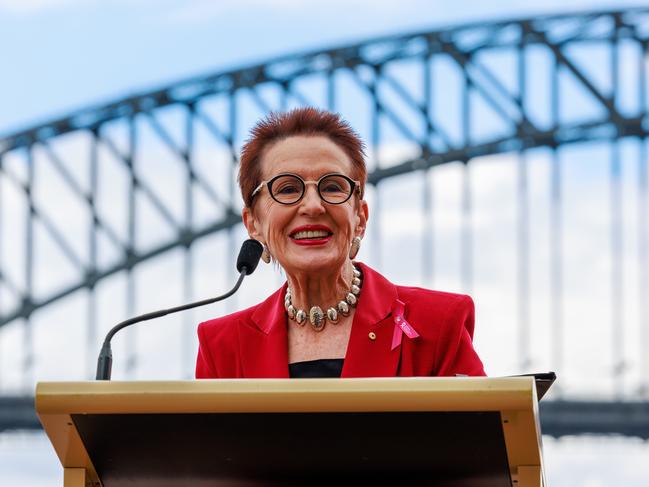
At the last council election, Ms Moore vowed to save the iconic strip – an important part of Sydney’s queer history and the host of the annual Gay and Lesbian Mardi Gras – but there are few signs of progress three years on.
Not far away, owners of The Old Fitz Hotel in Woolloomoolo had cause to chuckle at how Ms Moore views the city she leads.
Inside before sunset, no barbecues
Earlier this month, popular watering hole The Old Fitz was ordered by City of Sydney officials to shut down its outdoor operations by 8pm each night, after just two complaints from nearby residents.
In the summer months, punters would be sent home or forced inside and furniture packed away just as the sun set on the city.
James Thorpe, director of the hotel’s parent company Odd Culture, said the decision blindsided him given outdoor operating conditions have been in place for two decades.
The Old Fitz began trade in 1860 and is one of Sydney’s oldest pubs.
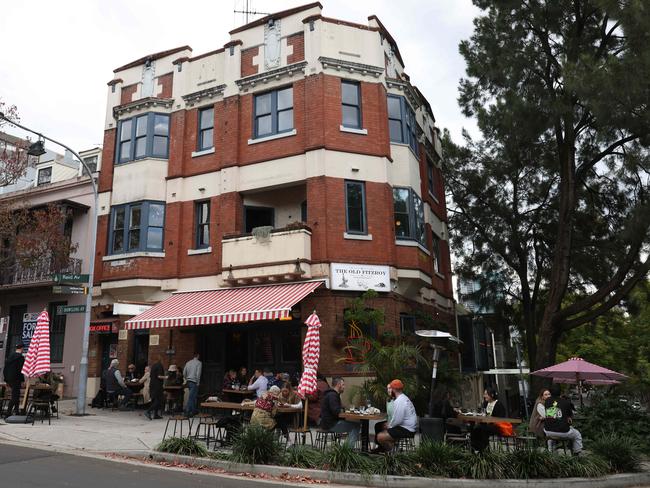
It’s not just hospitality business owners in the City of Sydney who run into issues with heavy-handed bureaucrats.
Smoke Shack restaurant in Mount Colah in the city’s north was ordered to remove its outdoor barbecue due to “environmental” concerns.
Owner Mehdi Moaddab was threatened with fines and court action if he didn’t comply with the demand, which was sparked by complaints from a single person whinging about “food smells”.
The slow cooking method made possible by the $12,000 outdoor smoker has seen diners flock to Smoke Shack for ribs, brisket, burgers and gourmet sausages, but Mr Moaddab fears the business will be “crippled”.
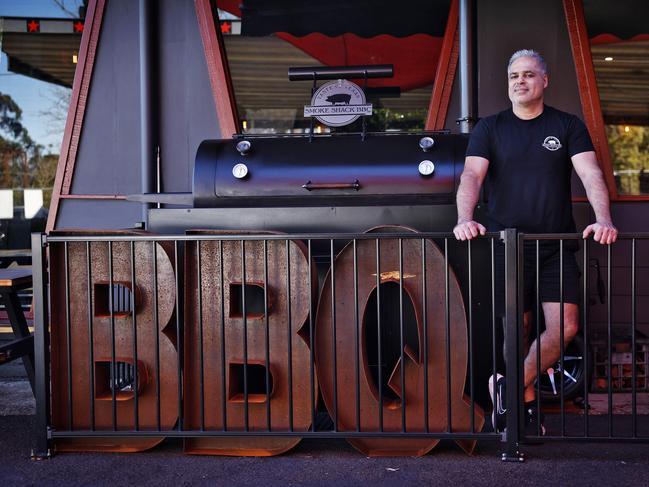
“I’ve spent thousands of dollars trying to address the council’s concerns, including hiring a town planner, commissioning $4000 for air quality reports, $3000 for acoustic report, $3000 for surveys and $4000 for traffic engineers,” he told the North Shore Times.
“I’ve put everything into the business and the council should be helping small business, not hindering us.”
Over in trendy Newtown, the Inner West Council has swooped in to kill off alfresco dining plans at Sydney’s hottest new restaurant, Comedor.
The eatery, just awarded a chef’s hat by the Good Food Guide only weeks after opening, was preparing to build a modest deck at the rear of the building, which backs onto Camperdown Memorial Park.
Council had granted management a permit to trade on 30 square metres of public land, servicing just five tables, but word of the deal sparked fury.
Greens councillor Liz Atkins slammed the move as amounting to “privatising the park”.
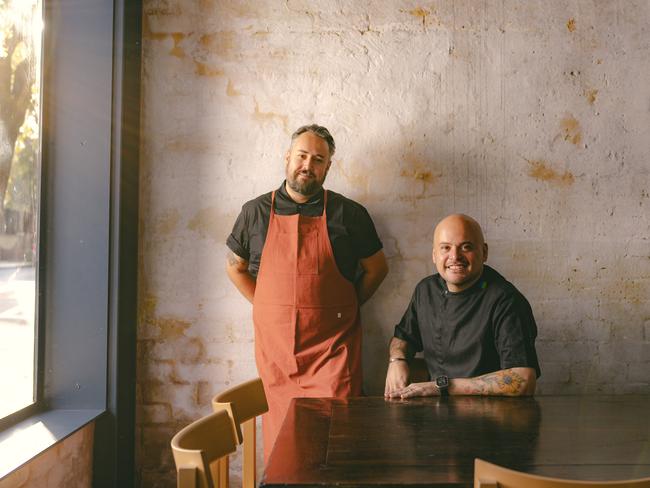
Objection from Cr Atkins, other councillors and the public saw Inner West Council backflip on the permit to allow “community consultation and engagement to occur”.
In a statement, a council spokesperson said: “The community engagement should have occurred earlier and Council apologises.”
Public spaces for all
Greater Sydney is fighting to save its soul, but often, the fiercest resistance comes from local politicians and bureaucrats who can make or break a city.
Much of the time, it seems local governments only hear the “loudest voices” in the debate at the cost of vitality and community life, Committee for Sydney cultural policy head Matt Levinson said.
“It’s frustrating when you see a good operator being penalised for trying to boost the life and energy of public spaces, whether it’s a brisket barbecue in Mount Colah or an alfresco deck in Newtown,” Mr Levinson said.
“Public spaces are more than playgrounds, picnic areas and places to kick a ball, as important as those uses are. They’re places where the community can come together – and different parts of the community will do it in different ways.”
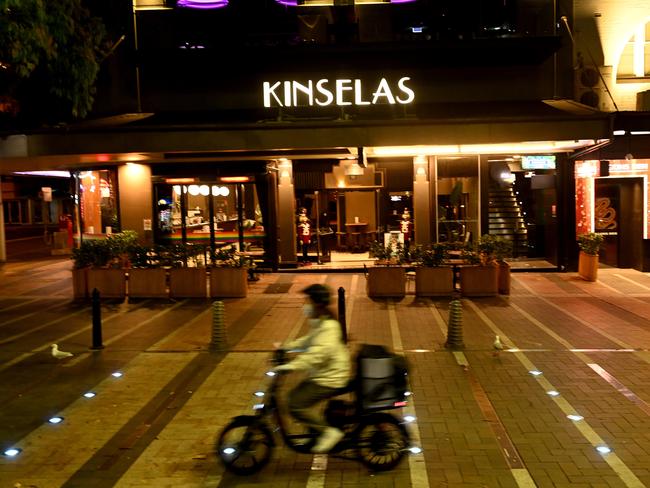
The reality of life in a big city means “sharing space” and as Sydney continues to grow and become more senilely populated, it’s understandable to see challenges arising from competing interests, he said.
“Councils have a tough job in weighing up the different objectives this public space is being asked to contribute to – they need to make sure they’re not just carving off public space for private gain, they’re actually adding something good to the area.
“But we need to make sure it’s not just the loudest voices that are heard in these debates, we need to ensure the stated aspirations for more vitality, more buzz, more community life in these places are getting heard in the approvals process too.”

Paul Nicolaou, executive director of Business Sydney, said hospitality operators are struggling enough as it is.
“There is no doubt the hospitality sector is doing it tough, particularly in the CBD where a number of factors are at play including staff shortages, reduced foot traffic, impact of high cost of living pressures and the increased cost of doing business,” Mr Nicolaou said.
“There is some hope on the horizon as we see the impact of the Metro’s introduction bringing high speed public transport into the heart of the city and Premier Chris Minns’ call for WFH government employees to return to the office.”
NIMBYism and nanny state rules
The New South Wales Government has also announced a range of initiatives that aim to support a night-time economy, increased vibrancy, and wind back “nanny state laws”.
Among other relaxed regulation, the changes make it easier for clubs and hotels to host events and harder for noise complaints to shut them down.
Mr Minns has also announced new “order of occupancy” rules, meaning existing venues can’t be hit by new neighbours’ complaints “because all of a sudden they don’t like to have noise in the evening”.
“It’s another step in removing the nanny state restrictions, the red tape, that have really stifled the vibrancy, the life and the fun out of Sydney for the last 10 years,” Mr Minns said at the time.
“We will no longer allow just a single noise complaint to close down live music venues right across NSW.”
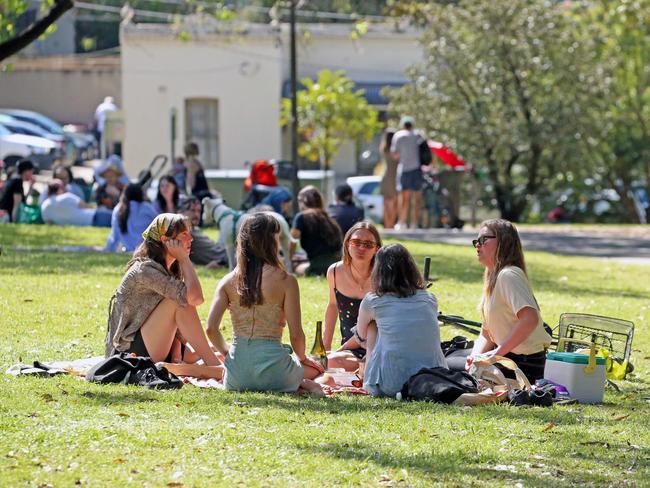
Following public uproar over the decision to wind back trade at The Old Fitz, Ms Moore said she had asked council officers to conduct an urgent review.
The mayor insisted she supported businesses that contributed to making communities vibrant and active, saying: “It’s wonderful to see people out on the streets, connecting with each other and enjoying their neighbourhood while supporting local businesses.”
But countless examples throughout recent times in her patch contradict that claim.
Twelve months ago, beloved pub The Eveleigh Hotel in colourful Redfern was slapped with harsh restrictions by City of Sydney Council that capped the number of patrons allowed in its outdoor area to just eight, with an 8pm curfew.
The venue was also banned from hosting live music because of noise complaints about its previous events – a “gentle jazz” session on Sundays that wrapped up by 7pm.
In Glebe, the Friend in Hand hotel was also hit with a raft of complaints from a single neighbour last year, including a written submission to the council about the pub’s resident cockatoo perched on a chair “outside the designated area”.
That same resident bizarrely complained about the outdoor dining space at another hotel in the next suburb over.
And in 2022, authorities imposed restrictions on the Cliff Dive nightclub, located just off the famous Oxford Street in Darlinghurst and within the designated CBD Entertainment Precinct.
It followed multiple complaints from one resident who demanded the venue be shut down, and the area rezoned to prevent future entertainment businesses from operating.
Originally published as No BBQs, no alfresco, shut before sunset: The ‘boring’ reality facing Sydneysiders in a city run by fun police





